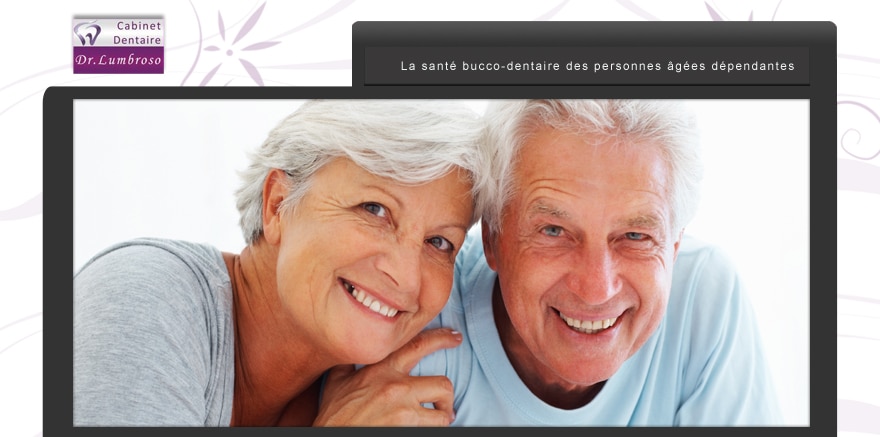La santé bucco-dentaire des personnes âgées dépendantes

Selon la dernière étude de l’Union française pour la santé bucco-dentaire, une majorité des personnes âgées accueillies en maison de retraite présente une santé dentaire préoccupante. D’où la mise en place de programmes de soin et de prévention locaux et régionaux afin de remédier à ce problème.
Selon les chiffres de l’UFSBD (Union française pour la santé bucco-dentaire), trois personnes âgées sur 4 admises en maison de retraite ont un état bucco-dentaire dégradé. 44 % présentent au moins une dent cariée ; 40 % doivent subir une extraction de dent douloureuse ; plus alarmant encore, 10 % ont besoin de soins en urgence. En cause, une négligence vis-à-vis de la prévention bucco-dentaire, puisqu’une majorité n’a pas été consulter un dentiste depuis cinq ans.
La dégradation observée de la santé bucco-dentaire entraînent des conséquences graves sur l’alimentation et la santé : dénutrition, risques d’infection, aggravation général de la santé, risques cardiaques, ostéoporose…
La prévention reste l’une des armes les plus efficaces pour lutter contre la dégradation de la santé bucco-dentaire des individus au fil des années. L’hygiène au quotidien, qui passe par un brossage de dents à raison de 3 fois par jour après chaque repas, est le premier geste à adopter pour préserver vos dents. Les dentifrices contenant du fluor sont recommandés car il renforce l’émail de vos dents. Vous pouvez également utiliser un bain de bouche pour assainir votre bouche et éliminer les mauvaises bactéries qui pourraient pénétrer l’émail de vos dents.
Une alimentation trop sucrée peut également menacer la santé de vos dents. Evitez les boissons et les aliments trop sucrés (bonbons, friandises), qui renforcent par leur acidité les bactéries dangereuses à l’origine de la formation de caries, telles la Streptococcus mutans. Par ailleurs, une visite de contrôle au moins une fois par an chez votre dentiste est vivement recommandée. A cette occasion il pourra contrôler l’état de la santé bucco-dentaire et effectuer des soins si nécessaire (détartrage, début de carie…)
En adoptant ces gestes et ces habitudes et en les appliquant rigoureusement au fil des années, vous préserverez un capital dentaire qui vous évitera bien des soucis plus tard. N’attendez pas qu’une douleur dentaire s’installe pour consulter votre chirurgien-dentiste !
Source : UFSBD
